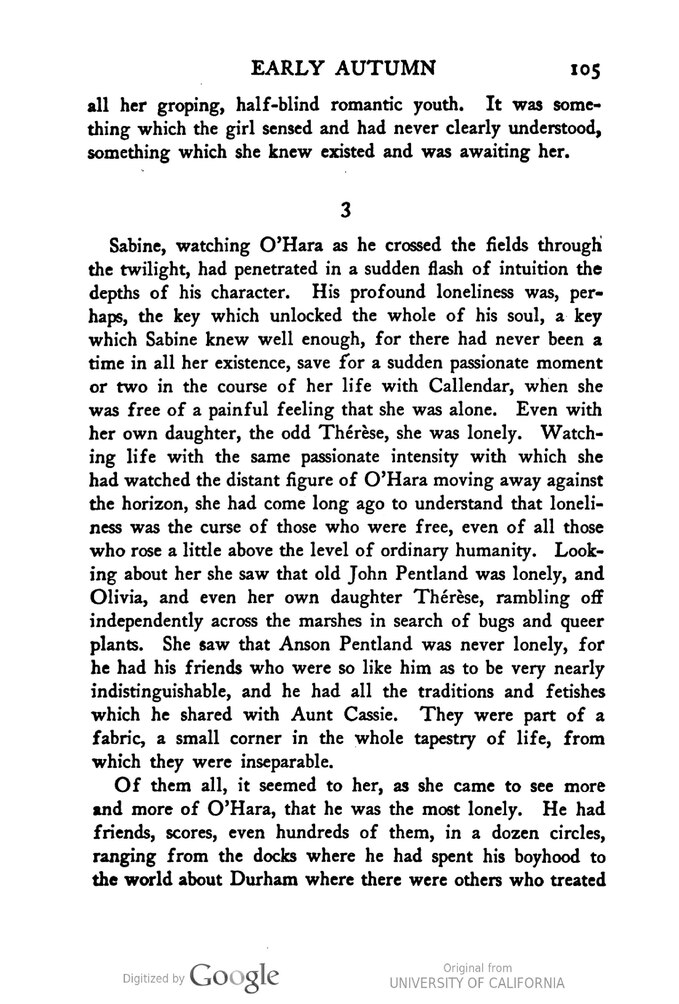all her groping, half-blind romantic youth. It was something which the girl sensed and had never clearly understood, something which she knew existed and was awaiting her.
Sabine, watching O'Hara as he crossed the fields through the twilight, had penetrated in a sudden flash of intuition the depths of his character. His profound loneliness was, perhaps, the key which unlocked the whole of his soul, a key which Sabine knew well enough, for there had never been a time in all her existence, save for a sudden passionate moment or two in the course of her life with Callendar, when she was free of a painful feeling that she was alone. Even with her own daughter, the odd Thérèse, she was lonely. Watching life with the same passionate intensity with which she had watched the distant figure of O'Hara moving away against the horizon, she had come long ago to understand that loneliness was the curse of those who were free, even of all those who rose a little above the level of ordinary humanity. Looking about her she saw that old John Pentland was lonely, and Olivia, and even her own daughter Thérèse, rambling off independently across the marshes in search of bugs and queer plants. She saw that Anson Pentland was never lonely, for he had his friends who were so like him as to be very nearly indistinguishable, and he had all the traditions and fetishes which he shared with Aunt Cassie. They were part of a fabric, a small corner in the whole tapestry of life, from which they were inseparable.
Of them all, it seemed to her, as she came to see more and more of O'Hara, that he was the most lonely. He had friends, scores, even hundreds of them, in a dozen circles, ranging from the docks where he had spent his boyhood to the world about Durham where there were others who treated
